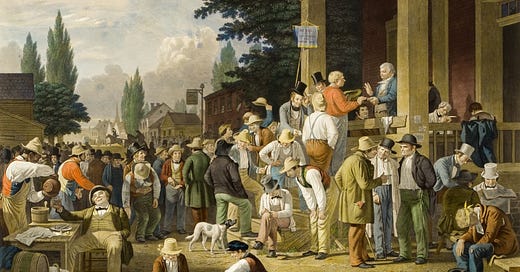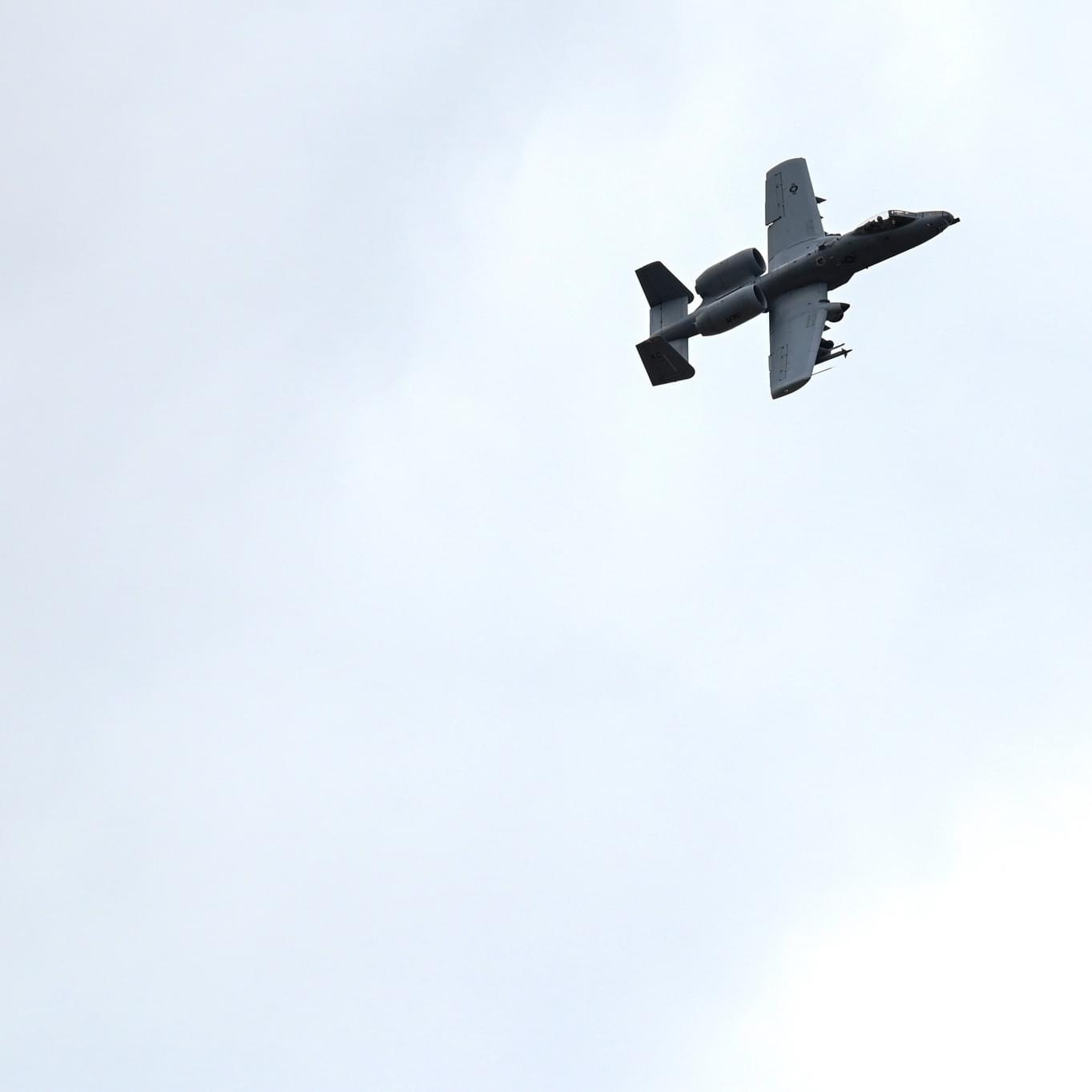Veterans and Voting
A November 11 tribute to those who've served in our military and a link to our Election Days
[It] is an endlessly fascinating question, what American patriotism really means today. One can love his country despite its philosophy, provided there is more to the country than its philosophy. Yet it is surely a sign of the impoverishment of common culture and the common good—and an index of the degree to which liberal order has succeeded in establishing itself as both—that we are virtually required to equate love of country with devotion to the animating philosophy of the regime rather than to, say, the tales of our youth, the lay of the land and the bend in the road, and ‘peace and quiet and good tilled earth.’ ~ Michael Hanby
It is counterintuitive to most Americans that love of country does not necessarily mean a deep and abiding love for the State. What I mean by that is a love for the particular ruling body or apparatus at a given time of the United States. And yet, if all we could deeply cherish and love about our homeland was wrapped up solely in our government, then what poor lovers—and beloved!—we would be and have, indeed.
This is what we’re trying to teach our children: to value their home, to love the land on which they are raised, to appreciate and to know its history. This does not mean, say, that they must recite the Pledge of Allegiance every day or even most days. It also does not mean that they should venerate and honor every person or event that is part of our shared past. Of course not. But they should know American history, and the pledge, and things like it, as knowledge about and understanding of our land’s civic and cultural heritage.
Voting is part of that heritage. Though this was an off-year election here in Casper, I’ve been thinking about voting. Years ago, on a warm August day, I went to a local church to vote in a primary. A few people came out as I walked in, each giving me a brief nod and a smile in the manner typical of reticent but polite Minnesotans. They all wore red circle stickers that announced, “I voted.”
I headed to the registration table in the gym, where a lady asked my name and paged through a binder until she found it in the list of registered voters. I signed next to my printed name, received a ballot and some simple directions, and slipped behind a fabric curtain into a voting booth. After I filled out my ballot, I took it to a man standing by a contraption that vaguely resembled a copy machine. He made sure I was putting in my ballot the correct way, the machine pulled it in like a cash machine sucking in a dollar, and the friendly man handed me my sticker. I proudly slapped it onto my shirt and practically skipped out the door.
As a mother with young children, I find that going out in public without any little ones in tow can be radically freeing. I can move quickly and purposefully, without stopping to grab a hand or pick up a dropped toy or yell something like, “For goodness’ sake, stay close! We’re in a parking lot!” That was one reason my feet felt so light.
But the other reason was that it struck me, the way it hadn’t in the fifteen years I’d been voting, at how easy it all was. Not only did voting take little time and effort on my part; it also required no personal hardship or sacrifice. No one questioned me about my voting habits or my political allegiances. No one threatened me or my family or tried to hurt me for exercising a civil right.
But in the whole of human history, such an exercise in democratic republicanism as voting has often been—maybe even mostly been—a source of tangible violence. Armed thugs coerce people into voting a certain way or silence them into sitting it out. Disorganized or partisan people, sometimes officials, discourage people from voting, or they pressure or manipulate them into voting, depending on what votes such people want to suppress or gain. Across the world, acts of voting have caused homes and livelihoods to be damaged, sometimes even lives lost.
Most Americans living today have been immune from this experience. And perhaps that’s part of the problem. When citizens take voting for granted, whether dismissing its import due to other priorities or to passive interest in politics at the local, state, or federal level, they forget what a valuable practice it is. A little red sticker becomes rare out of citizens’ willingness to forgo their voting rights.

I am not optimistic about voting in particular as a fix to our cultural and social divisions; if anything, it oversimplifies and exacerbates them, if campaign season is any indicator. And yet it holds a significance we ignore at our peril.
Since 1845, Election Day in the US has fallen on the first Tuesday after the first Monday in November. Another national holiday sits nearby on November 11, which is today. Veterans Day is a day set aside so Americans remember our service men and women who have fought for our country. Originally stemming from Armistice Day—the day that World War I unofficially ended and the fighting ceased—Veterans Day reminds us that wars, regardless of their cause or merit, are fought by our neighbors and loved ones, who care enough about us that they willingly risk their lives so that we—among many, many other freedoms—can vote.
Service men and women probably don’t think about it quite so prosaically, at least not in terms of how people in a small town or a big city head to a polling place to fill in circles on a form. But their sacrifice nevertheless ensures that you and I can deliberate and make our mark—determining the local sheriff or county commissioner, deciding whether a school levy should pass—on our government and ultimately in our lives.
One willing serviceman in particular stands out for me. My cousin Rick, a veteran of several tours in the Afghanistan war, just completed his final flight in an A-10C Thunderbolt II—otherwise known as the Warthog—for the Air Force in October. Rick logged 3,846 hours in the A-10 and 303 total combat sorties, an incredible achievement all by itself, as well as receiving the Bronze Star for meritorious service. I can’t imagine flying a plane loaded with thousands of pounds of fuel and ammunition, skimming low over land dotted with antiaircraft missiles. I can’t imagine doing that over and over again, for thousands of miles, not knowing if I would see my spouse or children again. I can’t imagine not knowing if I’d ever come home again.
But Colonel Rick “McGraw” Mitchell and countless veterans like him have served with such unknowns. And because they have, I can vote without fear and then go home again, living the life that is in front of me. So I am grateful, simply grateful, for the opportunity to vote in my community. This is not an invaluable right. Most people in the world have not or cannot exercise it, but we can. This can and should be an act, however small, that we cherish. And I hope my children learn their responsibility as citizens to be informed voters, and to also cherish that right when they come of age. Most of all, I hope they remember veterans who have set aside the ease of youth, the bends in their familiar roads, and the peace and quiet of good tilled earth—in essence, their own loves—so that we can enjoy these gifts and keep on loving as the best patriots should.
This post contains writing originally published at agoodwilderness.com on November 6, 2018, and in the Pipestone County Star on October 30, 2014.




